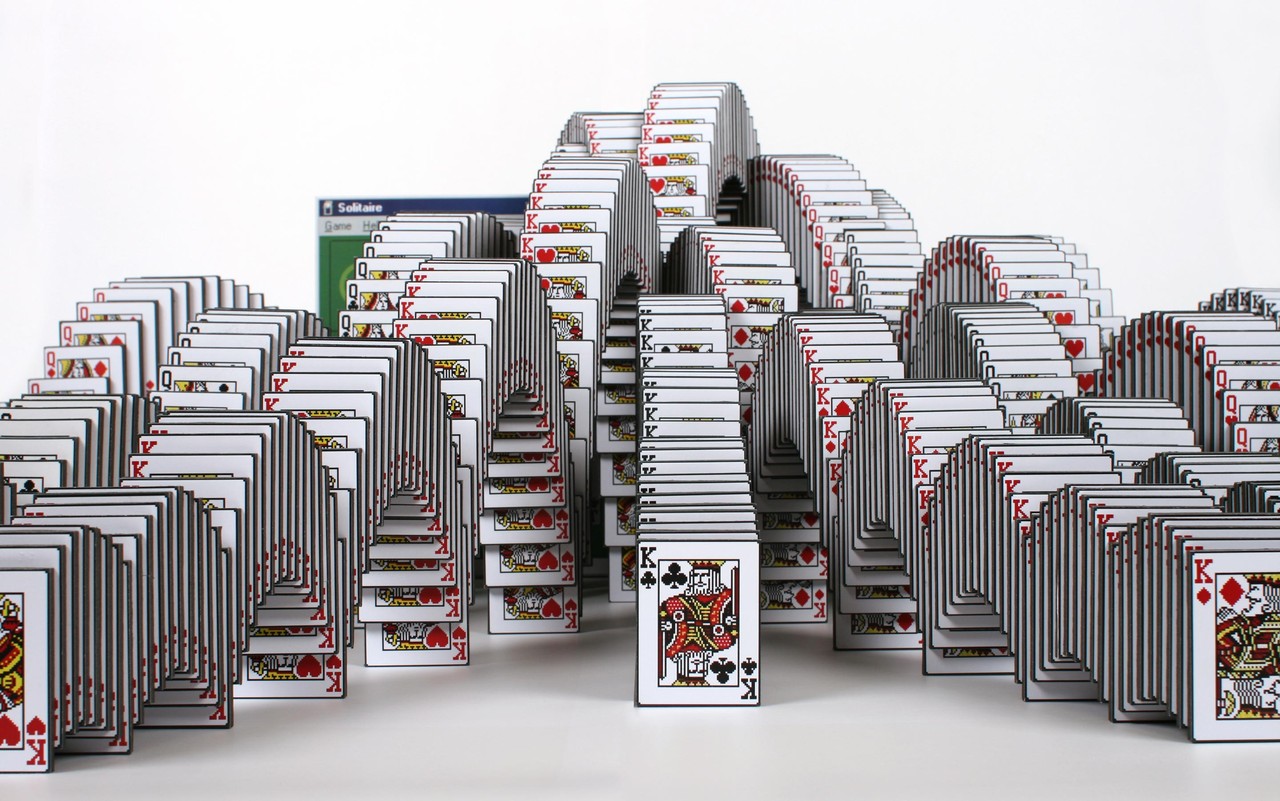When you're playing a solitaire game, the process of play often comes across as a puzzle, a way to make the brain think along a prescribed set of rules. Even if your game is a simplistic rule like "match the cards by rank" or "the sum of the cards taken must be 13", what you're ultimately doing is giving the brain something to work through logically. I'm far from a psychologist or neurologist myself, but I can say from personal experience that it's important that your brain has to deal with some logic every day. Sometimes it's even a good idea to have it be part of your morning routine. (After all, that was the entire point of stuff like Brain Age and the glut of imitators from last decade.)
While proponents of "brain training" like Dr. Ryuta Kawashima suggest doing simple math problems to help wake up your brain and limber up, it could be argued that a carefully selected solitaire game might also help. Of course, it's important that the game in question involve logic and problem-solving skills, as opposed to more luck-based games like Canfield or Golf. Again, I'm not an expert on how the brain works (I barely know how mine works, sometimes), but I've found that "puzzle" card games like Freecell, Scorpion, or even more obscure rule sets like Argentine Patience are great for me.
But we're straying from the point. Why does one play solitaire? What keeps a player coming back? If a card game is in the same league as a set of math problems, why not just do the math problems, instead of toting around a deck, or installing any of thousands of solitaire apps on your phone? I'd argue it's the satisfaction of having finished. Maybe that's not good enough for those folks who must win. A player might not stop playing until they've won a round, and then they might be so exhilarated with the win that they decide to play another. It can be addicting. It can require immense self-control to play only as long as is needed.

Cue the fireworks and the medieval fanfare. Or just toss your deck in the air. (Yes, this is a real sculpture.)
Hang on a second, though, because maybe these aren't the ultimate goals of solitaire. Keeping your brain limber is one thing, feeding an addiction is another entirely. Edmond Hoyle might not have designed his rules of play for either of those purposes. Perhaps he invented his games to keep bored nobles occupied. Maybe these are just wastes of time...intentionally, deliberately, and in no way insidious.
Or perhaps the goal of solitaire is more symbolic. It's less about the fact that you've won, as the fact that you've reversed the irreversible, unshuffled a shuffle. You've organized the deck, and can now put it back in the box, ready for the next cycle of shuffling and unshuffling. The deck has been defeated.